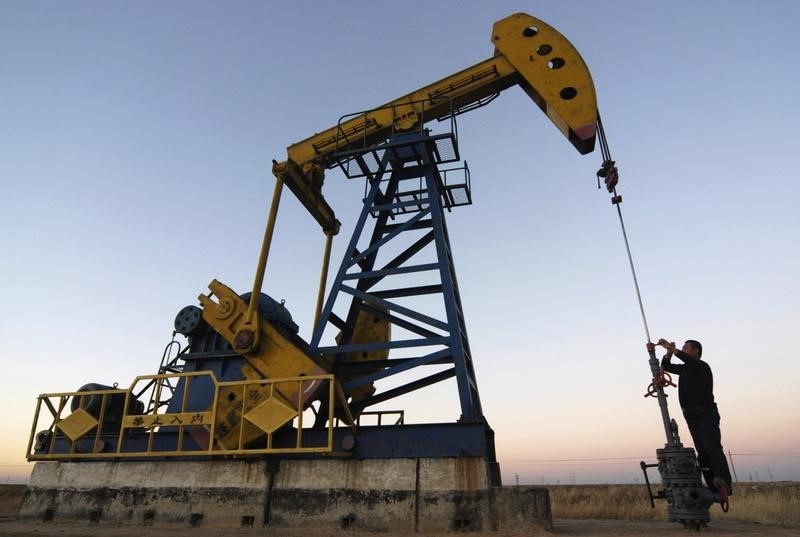Investing.com – Oil prices surged Monday morning in Asia after Russia and Saudi Arabia agreed to extend a deal to manage the market into next year.
Russian President Vladimir Putin and Saudi Arabia’s Crown Prince Mohammad bin Salman, meeting on the sidelines of the G20 summit in Argentina over the weekend, agreed to continue an existing deal to manage supply. Russia and Saudi Arabia are two of the three largest producers of crude in the world, with the U.S. completing the trio.
Crude Oil WTI Futures for January delivery rose 5.32% to $53.62 per barrel at 11:04PM ET (03:04 GMT) on the New York Mercantile Exchange. while Brent Oil Future for February delivery rose 4.84% to $62.34 a barrel on London’s Intercontinental Exchange.
The agreement between Russia and Saudi Arabia lead a group of oil producers known as OPEC+, which includes the members of the Organization of the Petroleum Exporting Countries (OPEC) and other large producers, most notably Russia.
During their meeting at the G20, Putin and bin Salman agreed to continue managing the market without committing to specific numbers.
“There is no final decision on volumes, but together with Saudi Arabia we will do it… we agreed that we will monitor the market situation and react to it quickly,” Putin told reporters.
The agreement comes ahead of an OPEC meeting on Dec. 6 that will also include Russia, which is not a member of OPEC. Oil producers are widely expected to announce cuts in supply to minimize the impact of a glut that has cut about a third of the value out of prices in a little more than two months.
According to Fitch Solutions, there are expectations “for coordinated cuts to reduce and oversupplied market and to realign with slower growth in demand”.
Still, reducing the oversupply may be difficult. The U.S., for one, has seen the amount of crude it pumps surge to around 11.5 million barrels per day (bpd), a record high. Production could even rise further next year.
U.S. President Donald Trump has sought to further reduce oil prices by urging producers to raise output.
Another agreement to emerge out of the G20 is a {{decision-1707724||decision}} by the U.S. and China to not impose any new tariffs for 90 days and to step up trade talks, which have also helped drive up oil prices.
